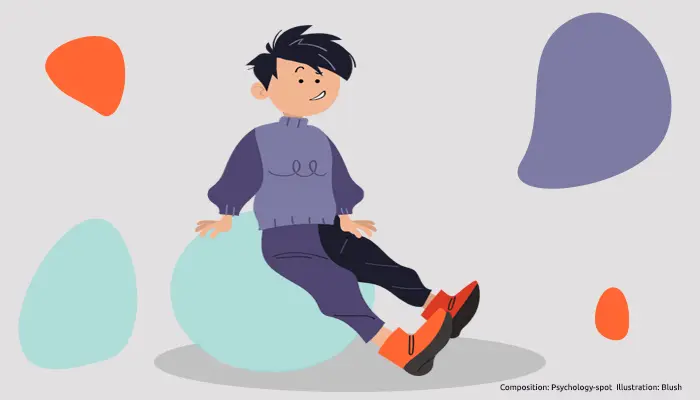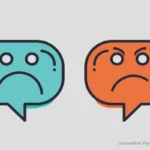
Charlie is a 10 year old boy, lives in Essex and has a great passion: the dinosaurs. A few months ago, his parents took him and his brother to spend the night at the Natural History Museum in London.
Then the little paleontologist devoted himself to carefully review all the pieces and realized that one of the specimens had been classified as Oviraptors but the image showed a Protoceratops.
The parents did not pay much attention when Charlie told them the error, but days later, the National History Museum in London sent them a letter thanking him for the correction and encouraging the child to continue deepening in paleontology.
Charlie’s case is quite peculiar, but his interest in dinosaurs is shared with many other children around the world. In fact, it is likely that at some point throughout your childhood, you too have become obsessed with dinosaurs or, at least you had a friend who loved them.
Children who are passionate about dinosaurs can name without error dozens of species, know what they ate, how they lived and even when they died. An adult can usually only name about 10 dinosaurs, with a little luck.
The intense interests in childhood
The incredible knowledge of children about dinosaurs is based on a phenomenon that in the field of Psychology is known as “intense interests”, a very strong motivation for a specific topic. In fact, a third of children develop at some stage throughout their childhood, as a general rule between 2 and 6 years of age, an intense interest.
In some cases, that interest is not extinguished in childhood but accompanies them for a large part of their lives. They are those people who have always had a passion that, in a certain way, has served as a guiding thread and refuge over the years.
Of course, not all children are passionate about dinosaurs, there are small fans of astronomy who know many stars and know how to identify them perfectly in the sky, others are obsessed with birds, planes or trains. In reality it does not matter what the object of that passion is, what is really important is the effort that children dedicate and the passion they experience.
An investigation carried out at the universities of Indiana and Wisconsin proved that intense interests are very beneficial for the intelligence development of children.
In practice, this type of interests, especially those that demand a conceptual domain as is the case of dinosaurs, not only make that the child have more knowledge about a certain subject but also enhance perseverance, improve attention and enhance skills of complex thinking as the processing of information. It has also been proven that linguistic skills are significantly improved and are an indicator of high understanding.
In fact, these psychologists explain that the way in which some children study dinosaurs or any other object of interest, in reality reveals the strategy that they will then use to face new situations and problems throughout their lives. They will have to ask questions and look for answers on their own, asking for help when they think they need it.
Therefore, those intense interests would be preparing them for life since they do not conform to general data but scratch the surface to deepen. Intense interests allow them to change their perspective, consider strategies to discover what they want, find relationships and, above all, learn autonomously directing their learning according to their motivations.
In short, intense interests make children go deeper into the world and develop critical thinking, motivate them to seek information and develop a passion for knowledge.
The wall against which intense interests clash
An investigation carried out by psychologists from the universities of Virginia and Yale, revealed that the intense interests in childhood do not seem to be mediated by the interests of the parents, since they usually appear during the first year of life without the parents having encouraged them. In fact, some of those interests are rare for the parents themselves.
The bad news, according to that same investigation, is that these interests usually last between six months and three years. Only 20% of children are still passionate about the same issue as they grow up. In most cases the end of that passion comes with schooling.
Apparently, when children start studying, they have much less free time to devote to their “investigations”. To this is added that they understand that the school requires a broader knowledge but also more superficial and often their interests do not fit within the school curriculum, so they just end up abandoning them.
Since intense interests are very positive for children, parents can continue to nurture that motivation at home. They should not only make sure that the child has time to continue deepening in what he or she is passionate about, but they should encourage him or her to find relationships between that interest and the subjects that he or she receives at school.
Remember this phrase of Jeff Bezos: “One of the huge mistakes people make is that they try to force an interest on themselves. You don’t choose your passions; your passions choose you.”
And if your little one likes dinosaurs, you will surely love this book where he will find answers to many questions that he probably asks about his life, diet and habits.




Emily Willoughby says
Please provide a link or at least a citation to the studies you’re referencing!
Jennifer Delgado says
You’re right, thank you. I just missed to copy the reference from my spanish blog. Now you can find it at the end of the article.
S. Cuevas says
I know it says it doesn’t matter the interest…but does star wars count? My 4.5 year old is obsessed, he knows every character, the planet they are from, the relationships, the ships…it’s insane.
Jeremy Gray says
I’d say so. Practical use of such knowledge isn’t the main theme but the passion and drive of a particular interest.
Jennifer Delgado says
As Jeremy said, passion is much more important than the practical use.
Lisabeth Brock says
Keep finding beneficial ways to encourage and celebrate this passion. Since a very young age, my son’s passions have included the Titanic, Minecraft, LEGO, Star Wars, the U.S. Presidents, astronomy, etc. He willingly spends vast amounts of time and energy amassing and compiling more and more detailed information on these topics, and can answer any question you can come up with, plus many you never would. His vast self-taught knowledge base allows him to lecture you on a given topic until your brain explodes. I have chosen to home school because this kind of passion and drive will not be pressed into a mold — it blazes its own trail! As the caretaker of such genius, one must creatively discover ways to fit the results of this passion into the pre-determined requirements of the educational system. I believe it will one day prove worthwhile, in some unique way yet unimagined. Stay the course.
William Jacob says
Thank you, for all the work that you’re doing, to preserve & enhance a brilliant, creative, young mind!
Jennifer Delgado says
Thanks to you for reading us!
Barry Prizant says
In our work in autism, we have referred to “obsessions” and intense interests as “enthusiasms” and “passions” for many years, and have encouraged infusing them in everyday activities. Unfortunately, some behavioral approaches have pathologized and targeted these interests for extinction. Discussed in my recent book “Uniquely Human: A different way of seeing autism” (Simon & Schuster, 2015).
Deborah Minor says
Thanks for chiming in, Dr. Prizant. My students and their “Intense Interests” have taught me so much. We can tap into those interests to teach so many other skills.
Jane Mancini says
This was so interesting to read and discribed my son precisely when he was young. His obsession with animals developed to dinosaurs; he knew which periods they were from, stating at the age of six that the film Jurassic Park was wrongly named due to the T-Rex not living in this period. He knew all the names, diets, about their evolution and many other facts beyond what one would think possible for his years. He is now 17 and has an ability to study well and retain information. He is calm and analytical and though no longer dinosaurs I recognise the same deep interest he had then is now focused on his chosen life passion of Film. He is top of his year with his films being put forward for and winning awards. He found both his current and past passions with no persuasion from his parents.
Ben Prytherch says
Hi, can you specify what parts of the cited papers justify this claim?
“An investigation carried out at the universities of Indiana and Wisconsin proved that intense interests are very beneficial for the intellectual development of children.”
Or the headline that “Being obsessed with dinosaurs enhances kids’ intelligence”.
I read through both cited papers and I couldn’t find anything. Admittedly I read through them quickly, and I might have missed it. The papers appear to be descriptive accounts of children with strong conceptual interests.
Jennifer Delgado says
Hi, as for the first study: (https://www3.nd.edu/~kkelley/publications/articles/Alexander_Johnson_Leibham_Kelley_CD_2008.pdf)
this is the extract:
“Researchers interested in the impact of expertise on children’s and adults’
categorization and concept use have analyzed how such domains support mastery of subordinate
level concepts through perceptual learning and the acquisition of semantic knowledge on topics
such as dinosaurs”
and for the second one: (https://www.ncbi.nlm.nih.gov/pubmed/18020834)
here you go:
“Some normally developing young children show an intense, passionate interest in a particular category of objects or activities. The present article documents the existence of extremely intense interests that emerge very early in life and establishes some of the basic parameters of the phenomenon. Surveys and interviews with 177 parents revealed that nearly one third of young children have extremely intense interests. The nature of these intense interests is described, with particular focus on their emergence, commonalities in the content of the interests, and the reactions of other people to them. One of the most striking findings is a large gender difference: Extremely intense interests are much more common for young boys than for girls.”
kind regards
Janet says
does this apply much more to boys than girls?
Kindergarten at home says
Very interesting article!
Kim says
Dinosaurs is one of the few educational topics available to kid where they can really get adult knowledge in a format they can absorb. We went through all the kid material and right into adult books, but he likes the pictures missing in adult books. It’s a shame, but I have never been able to find another topic that that’s as accessible to young minds. We waste them by not giving them more information .
Ed says
Very interesting. Some use the word “passionate” about such interests. Although somewhat of a buzzword, it conveys a positive sense. As I read this, I was reminded of both positive and negative images: from my own daughters, having strong interests in both dinosaurs, and animals, to caricatures such as the know-it-all boy in the movie Polar Express (he lectures on locomotive types, giving the exact specifications of the one pulling the Polar Express.) My own strong interests were definitely tempered or blunted by my schooling. However, I think it is also possible to reignite such intense interests.
Tami Anderson says
My son is 16 and continues to focus and study a subject. It changes over the years. Thanks to YouTube he currently know everything about every car imaginable. He can identify any car, knows ever little detail about engines. Tell about the different years of when they made modifications, and on and on. And it’s not because he was brought up in that world. My husband is a farmer. He amazes me.
Jennifer Will says
Thank you for this. One of my sons has intense interests like this. His happens to be robots and characters. It started very early. I am convinced that he will either work for Disney or he will work in robotics. He loves to build with legos, build simple robot kits (he is 7) and draw his robots and characters. He has problems in school because the work he is asked to do does not align with his interests.
Al says
Typical of kids who think for themselves. Like my princess. I simply let her be, let her go for what she loves to tinker and do till she grew up into a fine lovely, bubbly, very friendly, thinking young lady. She’s now 21 and everybody loves her.
I just support her wishes. That’s what we parents are for them, is it not?
Al says
Great write-up Ms Delgado!
As a kid, I too got interested with dinosaurs, Charles Darwin, the earth, celestial beings. I was intelligent indeed. I developed, on my own (no parental nor teacher interventions), a critical mind…I kept asking questions, including crazy ones. Employed this quality till my corporate days and now as a consultant.
Muchas gracias! Dios lo bendiga!
Jennifer Delgado says
Thank you!